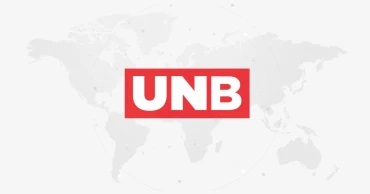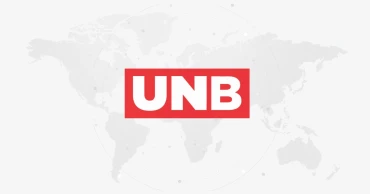anti tobacco
PROGGA, ATMA for imposing specific taxes on tobacco products
Research and Advocacy Organization PROGGA (Knowledge for Progress) and Anti-Tobacco Media Alliance (ATMA) have demanded the government to impose specific taxes on cigarettes and other tobacco products in the upcoming budget for 2021-22.
In a press conference held virtually on Tuesday, the two organizations unveiled their proposals regarding tobacco taxes and prices in the 2021-22 FY national budget.
Implementation of proposals would prevent premature deaths of nearly 390,000 current adults and 400,000 current youth, according to release.
Also read: Dhaka Conference: Amend tobacco laws, impose specific taxes
In addition, supplementary duty, health development surcharge and VAT on cigarettes would also earn the government Tk 34 billion in additional revenues, the organizations claim.
The Project Head of Tobacco Control at PROGGA Md Hasan Shahriar presented the budget proposals are-- Introducing a tiered specific excise (supplementary duty -SD) with uniform tax burden (SD share of 65% of final retail price) across all cigarette brands.
In the low-tier, the retail price should be set at 50 for 10 sticks, followed by Tk 32.50 as specific supplementary duty (SD); In the medium-tier set the retail price at Tk 70 for 10 sticks and Tk 45.50 should be imposed as SD; In the high-tier, the retail price should be set at 110for 10 sticks, followed by Tk 71.50 as SD; and in the premium tier, set the retail price at Tk 140 for 10 sticks and BDT 91 should be imposed as SD.
Read Amend existing law to build tobacco-free Bangladesh
Reducing price tiers from four to two in the medium-term (2021-22 to 2025-26) by reducing the gaps in final prices and tax rates between cigarettes brands
For 25 non-filtered bidi sticks, the retail price should be Tk 25, followed by a specific supplementary duty of Tk 11.25. The price for 20 filtered sticks should be Tk 20, which will be followed by a specific supplementary duty of Tk 9. As a result of such measures, in both filtered and non-filtered bidis, the specific supplementary duty will be 45 percent of final retail prices.
For SLT products, the price per 10-gram jarda and gul should be Tk 45 and 25 respectively. A specific supplementary duty of Tk 27 should be imposed on per 10-gram jarda. For gul, the specific supplementary duty should be Tk 15. As a result of such measures, in both jarda and gul, the specific supplementary duty will be 60 percent of final retail prices.
Read Bring smokeless tobacco products under tax net: PROGGA
They also propose to retain the existing 15% Value Added Tax (VAT) and 1% Heath Development Surcharge on all tobacco products.
According to the Global Adult Tobacco Survey (GATS), 2017, between 2009 and 2017, there has been a 1.5 million increase in the number of cigarette users. The numbers reveal that the existing tobacco tax structure has not been contributing to make Bangladesh a tobacco-free country by 2040, as envisioned by the Honorable Prime Minister.
With the ongoing second wave of Covid-19 pandemic, the health sector and overall economy of the country are going through precarious condition. If tobacco use goes unchecked during such a period of vulnerabilities, it would put the additional risk for public health, Shahriar added.
Also read:1.26 lakh people die in Bangladesh every year in diseases ...
According to World Health Organization (WHO), smokers are more likely to become severely ill when infected with covid-19. This makes the existing tobacco users, around 40 million in number, extremely vulnerable to severe covid-19 infection.
In Bangladesh, tobacco use claims 126,000 lives prematurely each year. In a 2019 study titled “Economic Cost of Tobacco Use in Bangladesh: A Health Cost Approach”, it was revealed that in 2017-18, the economic cost (medical expenses and loss of productivity) of tobacco use stood at Tk30,560 crore while revenues from the tobacco sector in 2017-18 FY was only Tk 22,810 crore.
He also said raising the prices of tobacco products would discourage the youth from starting use and getting addicted while encouraging the existing users belonging to the poor demographic to quit.
Read 10 people fined Tk 2,000 for smoking in public place
Supporting fully the budget proposals to increase tobacco taxes and prices, the convener of the National Anti-Tobacco Platform Dr Qazi Kholiquzzaman Ahmad said the government must look for the welfare of the people, as dictated in our Constitution.
“Unfortunately, the government only prioritizes the revenue aspect, turning a blind eye to how it impacts the lives of the people.” he also said.
Former Vice-Chancellor of Dhaka University Professor Dr AAMS Arefin Siddique said, “To hike tobacco taxes and prices, we can always follow the precedents set by neighbouring Sri Lanka. We can progress through learning from each other. We also need to educate the youth on the detrimental effects of tobacco.”
Read Tobacco causes 20% of deaths from coronary heart disease.
Senior Research Fellow of the Bangladesh Institute of Development Studies (BIDS) Dr Naznin Ahmed said taxes at a specific rate should be imposed on tobacco. It will benefit the government
“The covid-19 pandemic has created an opportunity for broader tobacco control. To utilize this, we need to make the harmful effects of tobacco widely known.” She also said.
The Research Director of Bangladesh Institute of International and Strategic Studies (BIISS) Dr Mahfuz Kabir said the tobacco taxation structure requires fundamental reform. With that end in mind, specific supplementary duty needs to be introduced.
Read Tobacco ban: Industries Ministry quashes health division's proposal
“The implementation of taxation and price related budget proposals, particularly in the low-tier cigarette brands, would significantly increase revenues and lower the health risk of poor demographic, considering the fact that 72 percent of cigarette smokers are users of low-tier brands.” Md Mostafizur Rahman, Lead Policy Advisor for Campaign for Tobacco-Free Kids (CTFK), Bangladesh said.
“We hope, the National Board of Revenue (NBR) will adopt the proposals. It will increase the government earnings, reduce existing tobacco use and also discourage the young from initiating,” Mostafizur added.
Read Are Smokers More Vulnerable to COVID19?
4 years ago
Bring smokeless tobacco products under tax net: PROGGA
PROGGA, the anti-tobacco platform, has proposed that all types of smokeless tobacco products be brought under the government's tax net in the upcoming budget for 2021-22 fiscal.
The organization recommended a good number of suggestions at a webinar Tuesday to reduce the consumption of tobacco products in the country, with the aim to realise a tobacco-free Bangladesh by 2040.
Raising tobacco taxes would encourage nearly 1.1 million adults to abstain from smoking and deter more than 800,000 youth from smoking initiation and save the lives of nearly 390,000 current adults and 400,000 current youth from premature death.
That is all before we even get to the Tk300 billion in tax revenue that it would generate for the government's coffers.
Also read: 1.26 lakh people die in Bangladesh every year in diseases related to tobacco use: PROGGA
The current tobacco tax structure in Bangladesh is complex and inadequate to discourage tobacco use. So, raising taxes in Bangladesh would save lives while increasing government revenue.
Progga’s recommendations are:
- Introducing a tiered specific excise with uniform tax burden (excise share of 65% of final retail price) across all cigarette brands;
- Reducing price tiers from four to two in the medium-term by reducing the gaps in final prices and tax rates between cigarettes brands;
- cutting down the prevalence of cigarette smoking from 15.1% to 14.1%;
- Increasing cigarette prices more at the LOW tier will help relatively lower income smokers in the LOW tier to quit and at the same time limit the ability of smokers to substitute to cheaper brands when prices increase in the higher price tiers. Jacking up prices of bidi and SLTs will discourage the use of such products among low-income people and significantly increase the revenues for the government.
Read Tobacco causes 20% of deaths from coronary heart disease: Report
Other Recommendations are:
- To reduce affordability of tobacco, increase specific supplementary duty regularly, based on inflation and increase in per-capita income;
- Simplifying the tobacco tax system by gradually eliminating distinctions between different tobacco products (filtered /non-filtered, tiers of cigarettes, distinctions between jarda and gul etc);
- Gradually introducing standardized packaging, i.e. marketing all forms of tobacco products in same amount packs (i.e. same number of sticks or same weight in container);
- Adopting and implementing a simple and effective tobacco tax policy (for 5 years) which will decrease tobacco use and increase revenue;
- Reinstating the 25 percent export duty on tobacco products.
Also read: National Budget: Progga, ATMA for hiking tobacco goods revenue
Following these tax recommendations would greatly further economic development and align tobacco tax policy in Bangladesh with global best practices.
Bangladesh has committed to achieve tobacco-related targets under the Global Action Plan for the Prevention and Control of NCDs and the Sustainable Development Goals (SDGs), specifically SDG 8. Raising taxes on tobacco is a cost-effective way to reach those targets. It is also a major step towards achieving the vision of a tobacco-free Bangladesh by 2040.
At the same time, tobacco tax reform will generate significant additional revenue to finance Bangladesh health and development priorities. This is a clear ‘win-win’ for the Government and people of Bangladesh.
Read Anti-tobacco platform’s annual conference on Saturday
4 years ago



